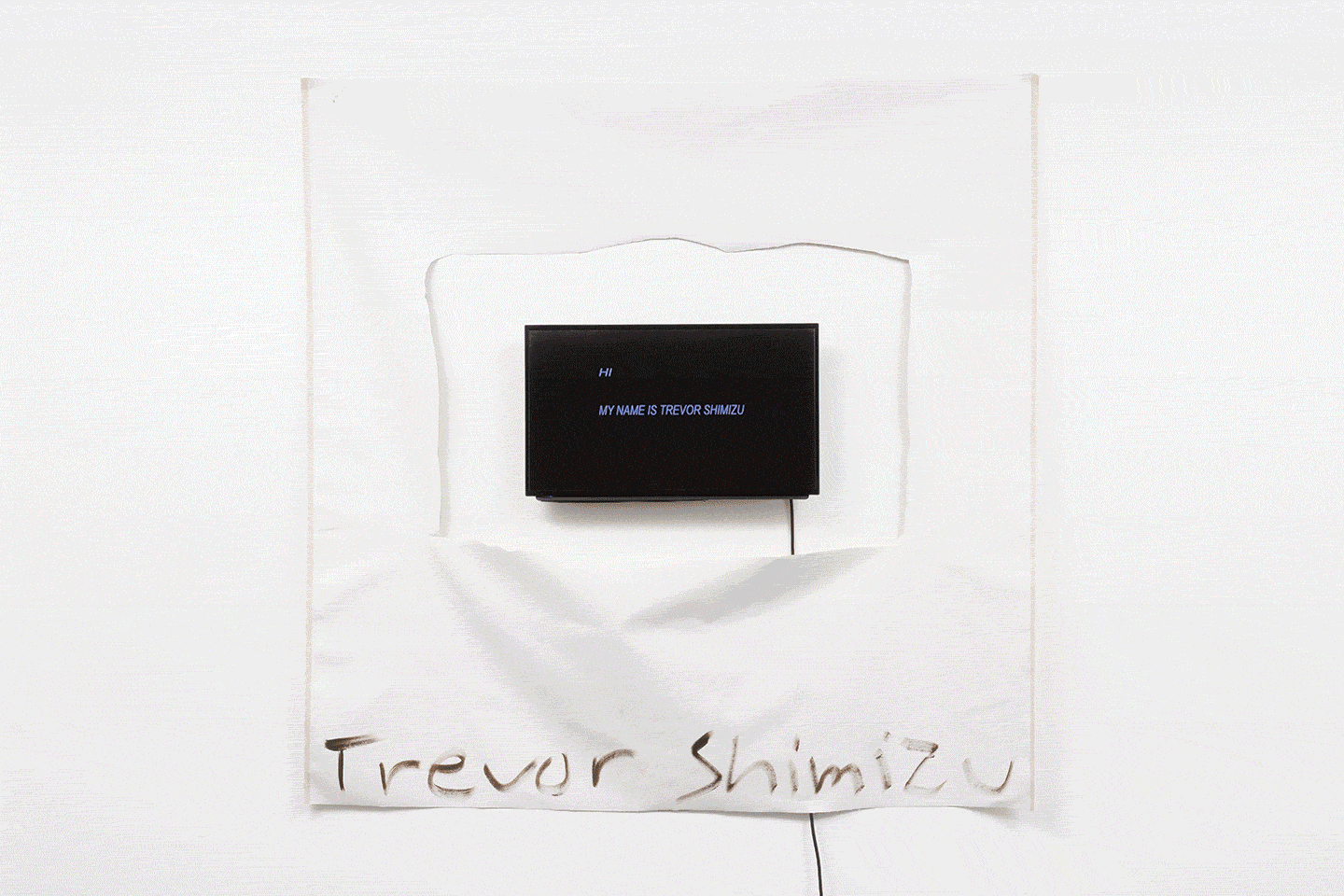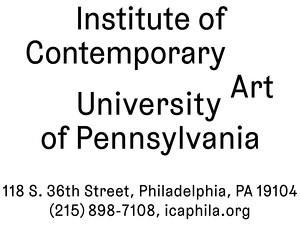January 24–May 10, 2020
118 S.36th Street
Philadelphia, PA 19104
USA
The Institute of Contemporary Art (ICA), University of Pennsylvania, is pleased to present Trevor Shimizu: Performance Artist, an exhibition staged across two venues, the ICA in Philadelphia (January 24–May 10, 2020) and the Kunsthalle Lissabon in Lisbon, Portugal (through Febuary 1, 2020), as part of the initiative I is for Institute. Together they present an overview of Trevor Shimizu’s videos, video paintings, and online interventions, offering a prescient and poignant commentary on affect and identity in our socially mediated moment.
While Shimizu is recognized primarily for his paintings and drawings, the inclusion of the artist’s media works help to reframe his broader practice as an expanded form of performance. Often produced using lo-fi and off-the-shelf digital technologies, his time-based works resonate with strategies employed by an earlier generation of video artists with whom he found himself in direct dialogue through his former job as technical director at Electronic Arts Intermix (EAI) in New York, one of the first nonprofit organizations in the United States dedicated to the advocacy of video as an art form. Just as those artists first produced work using Sony Portapaks and camcorders, Shimizu uses the technological tools at hand both to record actions for the camera and to employ the visual language of mass media for other means.
For Shimizu, video in its expanded sense has a provocative relationship to painting. In his ongoing series of video paintings, Shimizu displays flat screens in the center of holes that have been cut into large unstretched canvases. These painterly frames for video are usually produced in one of two distinct genres: monochromes or gestural abstractions. While his videos and paintings are different in delivery, Shimizu sees both modes of working as coming “from the perspective of a character,” which in turn can be understood as a kind of performance of the role of the artist.
Within these works, his deadpan delivery sometimes makes it difficult to discern Trevor Shimizu the individual from the artist as character. The dry humor that permeates much of his work thus acts as a kind of mask for his critical investigation into identity and the presentation of the self. Although there is no singular character depicted in Shimizu’s work, he often gravitates to the figure of the lone “beta male.” Contrary to the negative associations often conjured by angry internet subcultures such as incels, edgelords, and brogrammers, Shimizu renders a more vulnerable depiction of mediated masculine subjectivity. His self-conscious and often self-effacing portrayals—from the passive fan and rejected romantic to his sentimental reflections on fatherhood and idealized fantasies of other possible selves—speak to shared insecurities and a collective need to belong.
Trevor Shimizu (born 1978 Santa Rosa, CA; lives Long Island City, NY) has had solo shows at the Rowhouse Project, Baltimore; and Kunsthal Charlottenborg, Copenhagen. His work has been exhibited at Electronic Arts Intermix, New York; the White Columns Annual, New York; the Whitney Biennial, New York; the Queens Museum of Art, New York; and the High Museum of Art, Atlanta.
Trevor Shimizu: Performance Artist is organized by Alex Klein, Dorothy & Stephen R. Weber (CHE’60) Curator. The exhibition will be accompanied by the forthcoming related publication Broadcasting: EAI at ICA, co-developed with Electronic Arts Intermix (EAI) and designed by Geoff Han.
I is for Institute is an ongoing initiative organized by Alex Klein, Dorothy and Stephen R. Weber (CHE’60) Curator and Tausif Noor, 2017–2020 Spiegel-Wilks Curatorial Fellow. The project was co-developed with Gee Wesley, 2015–2017 Spiegel-Wilks Curatorial Fellow, and received additional support from Laurel McLaughlin, Brunilde Sismondo Ridgway Curatorial Fellow, Bryn Mawr College.
The Kunsthalle Lissabon was founded by João Mourão and Luís Silva in 2009 in Lisbon, Portugal, and is supported by República Portuguesa, Direção-Geral das Artes, FfAI, and Coleção Maria e Armando Cabral.
Support for the research and development of I is for Institute has been provided by The Pew Center for Arts & Heritage.



